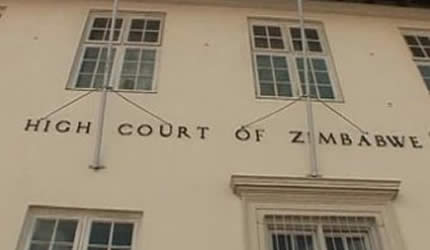High Court sets aside order against Chinake

Business Reporter
THE High Court has set aside an earlier order which sought to bar commercial lawyer, Mr Addington Chinake from acting in litigation involving the liquidation of Capital Bank Limited because it had been granted by mistake.
High Court Judge Justice Mafusire, set aside his earlier order which sought also to bar Mr Chinake from acting in a claim for damages of over $500 million brought by Renaissance Merchant Bank founder.
The Judge had issued an order restraining Mr Chinake and Kantor and Immerman law firm from acting for NSSA in the litigation.
“Whereupon, after reading documents filed of record; it is ordered that, the order of this Court in HC 10071/15, on November 23 2015, is hereby set aside by consent in terms of Order 49 Rule 449 of the Rules of this Court,” said Justice Mafusire last week.
Rule 449 deals with correction, variation and rescission of judgments and orders.
It states that the court or a judge may, in addition to any other power it or he may have, mero mou or upon the application of any party affected, rescind or vary any judgment or order- that was erroneously sought or erroneously granted in the absence of any party affected thereby or in which there is an ambiguity or a patent error or omission but only to the extent of such ambiguity error or omission.
It also says an order or judgment may be rescinded if it had been granted as the result of a mistake common to the parties.
The court or a judge shall not make any order correcting, rescinding or varying a judgment or order unless satisfied that all parties whose interest may be affected have had notice of the proposed order.
Facts that led to the earlier order which had barred Mr Chinake arose from a damages claim that was brought by RMB founder Mr Patterson Timba and others against the Reserve Bank of Zimbabwe, Econet Wireless, Mr Reggie Saruchera, Mr Bart Mswaka, Professor Christopher Chetsanga, Mrs Monica Mukonoweshuro amongst others.
Mr Chinake had argued, in papers before the Supreme Court that the Judge erred in granting an order against him and Kantor and Immerman law firm without affording them the opportunity to make representations and the right to be heard.
“The learned Judge erred in failing to treat the matter as a court application and in dealing with it in Chambers in the absence of the parties,” Mr Chinake said.
“The learned Judge erred in holding, as he must have done, that the First Appellant (Mr Chinake) either in his own right or on behalf of the Second Appellant (Kantor and Immerman law firm), was privy to confidential information which belong to the respondent, and which had been made known to the First Appellant in his capacity as the legal practitioner of the Respondent and that there was a significant risk of disclosure or misuse of any such confidential information,” he said.
Mr Chinake felt that the Judge also erred in finding that he was in breach of any duty to Renaissance Financial Holdings in his capacity as the former legal representative of the group.









Comments